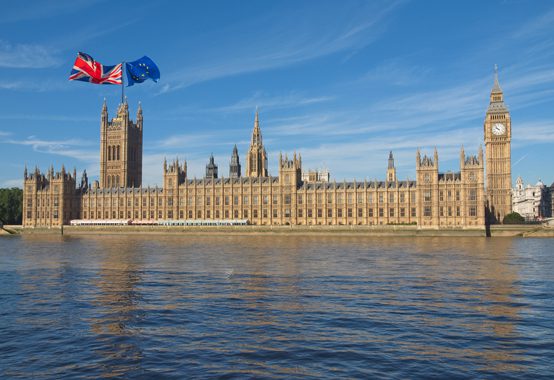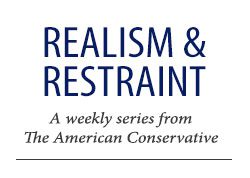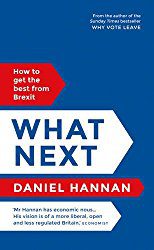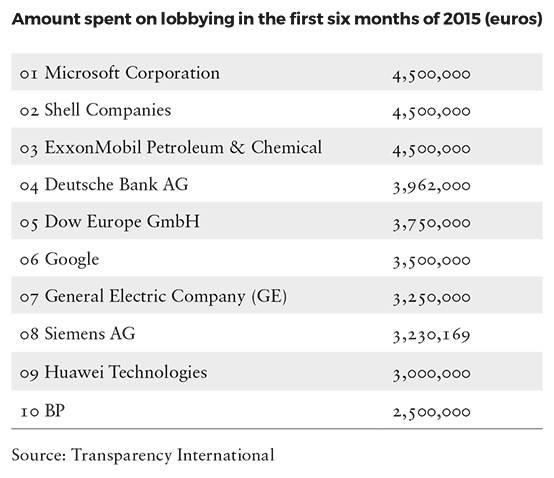Brexit Is a Victory for Democracy

One adjective, more than any other, is used in Brussels to describe the Brexit vote. It was, we are told a hundred times a day, “populist.”
“We have to fight against nationalism,” was how Jean-Claude Juncker responded to the British referendum result. “We have the duty not to follow populists but to block the avenue of populists.”
 Ah, populism. There is no more vicious word in a Eurocrat’s vocabulary. He spits it out in the manner of a teenager at a party who has mistakenly taken a swig from a beer can that was being used as an ashtray. Yet he is surprisingly vague about its meaning.
Ah, populism. There is no more vicious word in a Eurocrat’s vocabulary. He spits it out in the manner of a teenager at a party who has mistakenly taken a swig from a beer can that was being used as an ashtray. Yet he is surprisingly vague about its meaning.
The one thing that he unequivocally understands populism to signify is “something that other people like, but I don’t.” Plainly, in this sense, Britain’s vote to leave the EU was populist. But was it really, as so many TV reporters around the world assume, a vote for angry nativism? Was it a British version of the rise of Donald Trump? Or was it, rather, a legitimate reaction to an oligarchic system—a reaction informed by an ancient tradition of representative government?
In Brussels, few are capable of drawing the distinction between democracy and populism. You cannot be a decent Eurosceptic. The only respectable position is to support political integration. Voting against ever-closer union, even if your motivation is an essentially liberal preference for decentralization, open government, and anti-corporatism, is ipso facto populist.
My neighbor in the European Parliament chamber when I was first elected was a hefty Belgian Christian Democrat. He used the word “populist” frequently and ferociously, applying it with particular venom to supporters of Flemish independence. I once asked him whether the Flemish separatists weren’t simply representing their voters, just as he represented his. “As politicians we have a duty to lead, not just to do what people want!” he replied. Got it, I said. What you mean by “populism” is “having a legislature that broadly reflects public opinion.” In my country, we call that “democracy.”
Perhaps I shouldn’t have been quite so snippy with him. After all, my Belgian colleague had a point that, in a representative democracy, legislators should follow their consciences. A healthy regard for public opinion doesn’t oblige us to contract out our convictions. All parliamentarians—trust me on this—go through moments when we think that the majority of our constituents are plumb wrong about something. At these moments, we like to recall Edmund Burke’s Address to the Electors of Bristol:
Your representative owes you, not his industry only, but his judgment; and he betrays, instead of serving you, if he sacrifices it to your opinion.
What we don’t like to recall is what happened next. The Electors of Bristol were unimpressed by Burke’s characteristically high-minded argument. In particular, they resented the way in which his generous championing of the Irish cause challenged the mercantile interests of their city. The poor fellow was slung out at the next election. In his private moments, Burke would perhaps have called it populism, though I have no doubt that the Electors of Bristol would have called it democracy.
The essential feature of all populist movements is their belief that an elite is governing in its own interests rather than that of the general population. To make an obvious point, the validity of the populist argument depends on the extent to which that assessment is accurate.
Even in an open democracy, there is a natural tendency for people in power to rig the rules in their own favour, to give themselves an institutional advantage: established political parties passing laws that make it harder for newcomers to challenge them; big corporations using the regulatory regime to erect barriers to entry; public-sector workers ensuring that the system favours producers over consumers; mega-banks persuading politicians to bail them out with taxpayers’ money—all these are, in their ways, examples of oligarchy. And all of them are intrinsic to modern politics, because human beings are naturally self-interested. To the extent that they trigger a populist backlash, that backlash might be considered a proportionate and necessary antibody.
To put it another way, a measure of populism is inherent in any democratic system. The intensity and validity of the phenomenon depend upon circumstances. And that is where the difference lies between mainstream British Euroscepticism and the rise of Podemos and the Front National, the Occupy Movement and the Tea Party, Bernie Sanders and Donald Trump.
British souverainisme is not nativist or protectionist. Where Trump railed at Chinese exporters, British Leavers called for a bilateral free-trade deal with China. The only thing the two movements had in common was a sense of frustration with the Establishment.
That frustration stemmed, in both cases, from at least some shared causes. In both Britain and the United States, three factors in particular had contributed to a widespread disenchantment with the political class.
First, there was the Iraq War, and the subsequent belief that it had been launched on the basis of a deliberate lie. For what it’s worth – and I write as one who opposed the invasion – I think George Bush and Tony Blair were mistaken rather than mendacious. After all, if they knew that there were no weapons of mass destruction in Iraq, they must also have known that the invading troops wouldn’t find any. It would have been the stupidest lie in history. Nonetheless, the episode served to widen the rift between politicians and people. A conviction began to take hold, including among respectable and educated voters, that their politicians were prepared to send young men off to die for some clandestine cause; a cause, at any rate, whose true purpose had not been fully adumbrated.
Second, there was the credit crunch, which saw hundreds of billions of pounds taken through the tax system from low- and medium-income families and given to . . . well, no one is entirely sure what happened to it. The crash that followed the collapse of Lehman saw middle-class families expropriated through the tax system in order to rescue some very wealthy bankers and bondholders from the consequences of their own errors. No wonder the politicians who decreed those bailouts were blamed. And no wonder faith in the system took a knock from which it has still not recovered.
Third, our age is witnessing a mass movement of populations, a Völkerwanderung, unknown in peacetime. Rising wealth and advances in technology have triggered a migration from the poorer parts of Asia, Africa, and Latin America to developed nations.
I spent part of last summer volunteering in a hostel for underage migrants in the south of Italy. The boys staying there had come mainly from West Africa, and some had undertaken truly Odyssean journeys across first the Sahara and then the Mediterranean.
 They were courageous, resourceful, optimistic lads, and the more time I spent with them, the more convinced I became that, in their position, I’d have done exactly as they had. Few of them, though, were refugees, at least not as that term is legally defined. They were fleeing poverty, misery, and corruption, rather than war, oppression, and persecution. And for each one who had come, a hundred were waiting to follow.
They were courageous, resourceful, optimistic lads, and the more time I spent with them, the more convinced I became that, in their position, I’d have done exactly as they had. Few of them, though, were refugees, at least not as that term is legally defined. They were fleeing poverty, misery, and corruption, rather than war, oppression, and persecution. And for each one who had come, a hundred were waiting to follow.
When we met people being landed by the Italian coastguard, their first question was often “Where can I get Wi-Fi?” I don’t mean to suggest that, because they had smartphones, they weren’t in need. On the contrary, the phone was often their only possession of value. Smartphones are the key to the whole migratory phenomenon, making possible the transfers of credit and information that allow young people to move from Nigeria or Eritrea through Sicily or Greece into Northern Europe. To their grandparents, living on subsistence agriculture, such a trek would have been unthinkable.
People in the receiving countries are aware that these population movements are increasing. They keep hearing their leaders promising to do something about it, but nothing seems to check the flow. Some voters suspect that, for all their promises, the politicians don’t really want to do anything about it. They wonder whether their elites secretly want more inward migration than they publicly admit, seeing it as a source of cheap nannies and gardeners rather than as a source of competitive pressure on jobs and amenities.
Put it all together and what do people see? A political class that will send boys to die in distant lands on the basis of, at best, a half-truth; that levies taxes on the poor to bail out the rich; and that supports an immigration policy designed for big business at the expense of ordinary people.
For what it’s worth, I think only the second of these assertions is fair. But I can see why a gap has opened up between government and governed, between what the Italians call the paese legale and the paese reale, between (as a constituent of mine, a call-center worker, put it) the smirking classes and the working classes.
The question is how to fill that gap. Will mainstream politicians offer a greater measure of democratic control? Can we aspire to make British voters as contented as, say, Swiss voters, who regularly tell pollsters that they are delighted with their system of regular referendums? Or will we leave the way open to some local version of Donald Trump or Beppe Grillo?
Dismissing the recent vote as essentially populist or chauvinist risks causing a massive misdiagnosis and thus a faulty prescription. It is, perhaps, an understandable error, again deriving from behavioral psychology. It is natural to identify a cause with its most strident advocates. Think of how many English people say “the Scots” when they really mean “the Scottish National Party”—Scotland having very recently voted against independence. Or think of how many people, when they hear the word “Muslims,” think of long beards or burqas or even of Islamic terrorism, rather than of actual Muslim friends or workmates.
In much the same way, perhaps understandably, some observers, especially on the broadcast media, associate the Leave campaign with its angriest and loudest advocates. Hence their insistence, in defiance of the polling data, that the vote was “all about immigration.” In my experience, if you’re told that, you can be almost certain that you’re talking to a Remain voter.
Britain, like all countries, has its share of bigots and racists. Some of them no doubt voted to quit the EU. But we know for a fact that most Leave voters want a measure of immigration from the EU to continue, and that 84 percent of them want existing EU migrants to the UK to be allowed to stay.
If there was a populist tinge to the campaign, it was populism in its more exact sense: a reaction to oligarchic rule, a resentment of a ruling elite that seemed to be governing in its own, not the national, interest.
Speaking to a rally in Kent a week before the poll, I began to hymn that county’s radical past, from the Peasants’ Revolt to its support for the parliamentary cause in the civil war. When I mentioned the Peasants’ Revolt, the audience interrupted with prolonged cheers. In their eyes, the EU referendum was partly about reminding the grandees and Euro-corporatists that they weren’t the only people in Britain.
They had a point. Just as the original Peasants’ Revolt was directed at an alien caste, a French-speaking aristocracy that maintained itself in power through a series of legal privileges, so the Leave campaign was aimed at various groups who had learned how to make a living out of Brussels.
The Remain campaign’s very first move was to publish a letter in the Independent signed by the heads of various green pressure groups warning against Brexit on grounds that EU laws had “a hugely positive effect” on the environment. It did not attempt to explain why a post-EU Britain wouldn’t simply retain or replicate—or even improve—these “hugely positive” laws. As so often, there was an insulting implication that voters needed to have such things handed down by their betters.
Most interesting, though, were the signatures at the end, representing Natural England, the Green Alliance, the Royal Society for the Protection of Birds, the Natural Environment Research Council and so on. Of the twelve organizations named, the European Commission funded eight directly—and others indirectly. But, of course, “protect our countryside” sounds much prettier than “protect our grants.”
Just as NGOs had learned how to parasitize the EU, so, more damagingly for the ordinary citizen, had large multi-nationals. The Remain campaign was funded by megabanks and corporate giants, including Goldman Sachs, J.P. Morgan, and Morgan Stanley. Again, it’s not hard to see why.
The green grandees’ letter was followed by several more from Brussels-sponsored lobbies, including universities, charities, and businesses. A letter in the (London) Times was signed by the bosses of 36 FTSE-100 companies. A moment’s research showed that these companies had collectively spent €21.3 million lobbying the EU, and got back €120.9 million in grants from Brussels. It’s hard to argue with a 600 percent return on investment.
The money, though, is the least of it. Far more damaging is the way big firms lobby to get rules that suit them and hurt their competitors. I was surprised, when I was a new MEP, that corporate giants were forever demanding more regulation. It took me a while to understand why. They could easily assimilate the compliance costs, and were raising barriers to entry so as to secure a more monopolistic position.
The sums poured into lobbying rival anything seen in Washington—with the difference that, in Brussels, there is no countervailing pressure from the electorate. Here is a summary of what the big firms spent in the last six-month period for which figures are available:

There is nothing intrinsically wrong with lobbying. Personally, I have made it a rule not to deal with lobbyists as an MEP, but I’m aware that I’m being unfair to most of them. My complaint here is not about lobbying; it’s about the way that the beneficiaries of lobbying were seeking to prejudice the democratic process, to secure a Remain vote that would serve their interests rather than that of the country as a whole. Is opposition to such a racket populist? If so, it’s surely a justified populism: a legitimate reaction against an oligarchic tendency.
If you think “oligarchy” is too strong a word, by the way, ponder this. An official working for the EU is exempt from national taxation, paying instead a token rate of European tax equivalent to around 21 percent, flat.
Contemplate, for a moment, that extraordinary fact. The bureaucrats in the Commission and Parliament make decisions that have fiscal consequences for ordinary people, while themselves being exempt from those consequences. If that isn’t oligarchy, what is?
When we consider the oddities of the French ancien régime, one of the greatest iniquities, to modern eyes, is that the aristocracy was largely exempt from taxation. We wonder at a system based on the legal and systematic expropriation by the rich of the poor. Yet we have re-created such a system in Brussels.
The tax exemption is only the most visible and flagrant example; in truth, the entire EU system is based around transferring wealth from ordinary citizens to those lucky enough to be part of the machine.
What we saw in the referendum was an overdue correction, a recovery of power from remote elites. We saw a vote of confidence in democracy itself, based on the conviction that the United Kingdom could flourish under its own laws, trading with friends and allies on every continent. Perhaps most dramatically, we saw the British people disregard the advice—no, the instructions—of those who presumed to be their betters. They ignored the hectoring, the bullying and the scare stories, and politely voted to recover the right to hire and fire their own lawmakers.
To explain why they were right—and to explain, perhaps, the outrage of some of the defeated—let me quote Burke again.
Because half-a-dozen grasshoppers under a fern make the field ring with their importunate chink, whilst thousands of great cattle, reposed beneath the shadow of the British oak, chew the cud and are silent, pray do not imagine that those who make the noise are the only inhabitants of the field; that of course they are many in number; or that, after all, they are other than the little shrivelled, meagre, hopping, though loud and troublesome insects of the hour.
Let’s allow that there was a measure of anti-Establishment sentiment behind the Leave vote. You don’t have to believe it was justified, though I happen to believe it largely was. The question is how to soothe that feeling.
Part of the answer lies in the field of economic policy, or more specifically monetary policy. Having just quoted the great Irish seer and father of conservatism, Edmund Burke, let me now turn to the political thinker who stands furthest from him along the political spectrum.
Karl Marx was wrong about pretty much everything. I don’t just mean wrong in the broad moral sense—although, with a hundred million deaths carried out in his name, he has a good claim to be reckoned the greatest incitement to violence in human history. No, I mean wrong in the literal sense that every prediction he made failed to come true—except one.
Marx saw himself as a scientist rather than an ideologue. His followers treated his turgid writings not as a series of opinions, but as a catalog of empirical truths. Yet his record as a forecaster could not have been worse.
Free markets, Marx wrote, would destroy the middle class, concentrating wealth in the hands of a tiny number of oligarchs. In fact, free markets have enlarged the middle class everywhere they have been allowed to exist.
The revolution, he wrote, would occur when the proletariat became sufficiently self-aware, something he expected to happen first in Britain and then in Germany. In fact, as the working classes in those countries became more educated, they shored up the established order; the revolutions happened (disastrously) in Russia, China, and Cuba which, according to Marx, were conservative peasant societies.
Capitalism, he believed, was doomed: it would collapse under the weight of its own contradictions. In fact, when he wrote that in 1848, capitalism was already beginning to lift humanity to an unprecedented level of wealth—a process that has been accelerating ever since.
Marx’s disciples are impervious to the failure of their prophet’s doctrines. Like the religious casuists they despise, they fit events to their beliefs rather than the other way around. Those beliefs are surprisingly widespread.
Although you find few self-declared Marxists these days except in universities, many of his precepts have become mainstream. When we talk of “exploitation” or “wage slaves” or, come to that, “capitalism,” we are quoting the old cadger.
How many times have you heard it asserted that “the rich are getting richer and the poor are getting poorer”? That idea, too, derives from Marx, who called his theory “immiseration.” Until now, it has been as false as everything else he wrote: someone on benefits in a Western country today is better off than someone on average wages in 1930.
Yet, very recently, it has started to come true. When, in response to the credit crunch, central banks printed extra money, they pushed up the price of property. People who owned stocks, shares, houses and other valuable goods saw their wealth rise commensurately. People dependent on their wages fell behind.
After a century and a half of being solidly wrong, Karl Marx is being vindicated—by loose monetary policy. If we measure assets and debts, rather than income, the wealth gap has grown considerably. In Britain, the richest fifth of households are 64 percent better off than they were a decade ago, while the poorest fifth are 43 percent worse off. It’s a similar picture in the United States and in most of Europe.
If you want an explanation for the rise of populism, look no further. Working-class voters in Western countries are reacting to something recent and, in peacetime, almost unprecedented: a real decline in wealth.
It is in our nature to be loss-averse. Innumerable studies by behavioral psychologists show the same thing: given the chance to win a large sum by staking a smaller one, we make the irrational decision to hold on to what we’ve got. Our pain when we drop a £20 note is far greater than our pleasure when we find one in the street. Behavioral psychologists also tell us that, faced with loss, we become frightened and angry, and vote accordingly.
The worst of it is that central banks show no sign of slowing. Mark Twain once wrote that, if all you have is a hammer, everything starts to look like a nail. In the minds of the U.S. Federal Reserve, the Bank of England, the European Central Bank, and the Bank of Japan, all they have is a printing press. Every new injection of cash lifts the markets, and the rush wears off more quickly each time.
Until now, the idea that the state should lose its monopoly over money has been seen as a fringe position held only by eccentrics like Ron Paul and Douglas Carswell. I have a feeling that that is about to change.
Having a hard currency, based on something independent of the state, such as a commodity or a blockchain, will eventually halt the transfer of wealth from wage-earners to rentiers. But there is a more immediate way to assuage public anxieties, to take the heat out of populism. Again, the answer lies in making decisions more local and more democratic.
I have already touched on the idea that councils should have greater control over taxation and spending, including more control over welfare. In the case of planning, I’d go further, devolving power to a yet more local level. I’d make more use of the referendum instrument, especially on local tax issues. But these reforms should not be seen simply as one-off transfers of power. We now have an opportunity, fundamentally, to rethink the unitary structure of the British state.
Daniel Hannan is a member of the European Parliament. This article is adapted from his recent book What Next: How to Get the Best From Brexit.
Comments